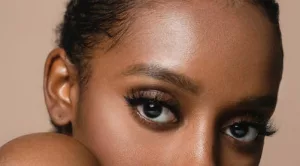What is Retinol?
Retinol, also known as Vitamin A1, is a vitamin found in food and used as a dietary supplement. As a supplement, it’s pivotal for good vision, a healthy immune system, and cell growth. But did you know it’s also a secret weapon in many cosmetics and skincare products?
In the world of skincare, retinol works by promoting the production of new skin cells, replacing old ones, and boosting collagen production. The result? A healthier and more youthful appearance.
The History of Retinol
The use of retinol in skincare isn’t new; in fact, it’s been around for over 40 years. Initially introduced for acne treatment, the anti-aging benefits of retinol were soon discovered, leading to its widespread use in skincare products.
Benefits of Retinol for Skin
Anti-Aging Effects
What makes retinol a superhero in skincare? Its impressive anti-aging effects. By speeding up skin cell turnover, retinol helps reduce the appearance of fine lines and wrinkles, giving the skin a smoother and more youthful look.
Acne Treatment
Retinol’s original use was for treating acne, and it remains effective today. By unclogging pores and reducing inflammation, retinol helps to prevent and treat stubborn acne breakouts.
Skin Brightening

Feeling a bit dull? Retinol can help with that too. By exfoliating at a cellular level, retinol can help to brighten the complexion, reduce dark spots, and give your skin a healthy glow.
How to Use Retinol
Choosing the Right Product
Navigating the world of retinol products can be tricky. A good rule of thumb? Start low and go slow. A lower concentration can still provide significant benefits without causing irritation. Which should i use: Hyaluronic Acid vs. Retinol.
Applying Retinol Safely
When using retinol, less is more. A pea-sized amount is often all you need. And remember, always apply at night and use sun protection during the day.
Common Mistakes to Avoid
Rushing the process and using too much product are common retinol mistakes. It’s also essential to avoid combining retinol with certain cosmetic ingredients like vitamin C or alpha hydroxy acids, which can irritate the skin.
Potential Side Effects and Precautions
Understanding Purging vs Breakouts
It’s not uncommon for your skin to purge, or break out, when you start using retinol. This is a normal part of the process and should subside after a few weeks. If breakouts continue, consider consulting a dermatologist.
Precautions While Using Retinol
Retinol can cause skin dryness and sensitivity, especially when starting. Always use a moisturizer and sun protection when using retinol products.
The Future of Retinol in Skin Care

The benefits of retinol are vast and research continues to uncover more. With advancements in formulation and application, the future of retinol in skincare looks brighter than ever. Could this age-old ingredient be the key to ageless skin? Only time will tell.
Retinol vs. Retinoids: What’s the Difference?
Though often used interchangeably, retinol and retinoids are not the same. Both are forms of vitamin A and provide similar benefits, but retinol is a milder form that is converted into retinoic acid by the skin. Retinoids, on the other hand, are potent forms of retinoic acid that can be harsh on the skin but deliver faster results.
Retinol in Dietary Supplements
Apart from skincare, retinol is also a popular ingredient in dietary supplements. It promotes overall health by maintaining the immune system and supporting eye health. However, it’s essential to consult a healthcare provider before adding any supplement to your diet.
Common Myths and Misconceptions about Retinol
Myth:You Can’t Use Retinol During the Day
While it’s true that sunlight can degrade retinol, it’s still possible to use retinol products during the day as long as they’re paired with a high-SPF sunscreen. However, for best results, using retinol at night is generally recommended.
Myth:Retinol Thins the Skin
Contrary to this common myth, retinol actually thickens the skin by increasing cell turnover and stimulating collagen production.
Conclusion: Your Journey with Retinol
Retinol is an incredibly effective skincare ingredient with decades of research to back its benefits. Whether you’re just starting your skincare journey or you’re looking to amp up your routine, retinol could be a game-changer for you. Just remember, patience is key, and the journey to healthier, radiant skin is a marathon, not a sprint.
Retinol References
Retinoids in the treatment of skin aging: an overview of clinical efficacy and safety